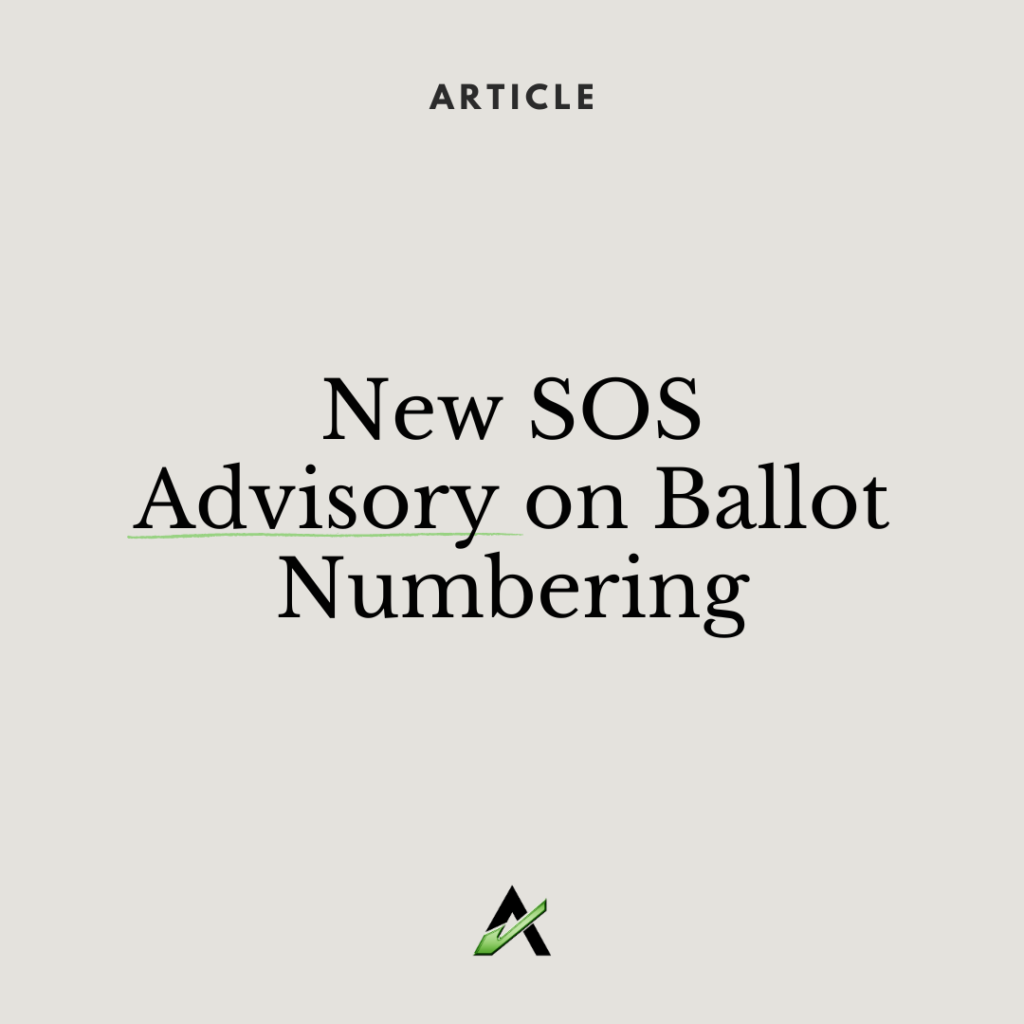The Elections Division of the Texas Secretary of State has issued another advisory aimed at protecting ballot secrecy. This advisory could lead to pre-printed, sequentially numbered ballots in about half of Texas counties, something many election integrity advocates have requested for years.
Election Advisory 2024-21 states, “In light of recent events that have highlighted how publicly available records may be used to impact a voter’s right to a secret ballot, our office has revised the standards for certification of an electronic pollbook system. Those revised standards prohibit the generation of ballot numbers using electronic pollbook systems or using peripheral devices that directly connect to electronic pollbook systems. Jurisdictions using those systems are now required to use ballot numbering methods that do not involve the use of the electronic pollbook system or peripherals that are directly connected to those systems.”
The statement refers to recent events where individuals exposed the alleged ballots of elected officials and claimed to be able to identify the ballots of thousands of Texans. While these actions exposed vulnerabilities in our elections, Advancing Integrity strongly condemns the methods used. No one should ever publicly display the ballot of any individual and reveal how that person voted, especially when the motives can be linked to potential personal political gain.
There have been questions about how people were linked to their ballots, through elimination or an algorithm, but most election integrity advocates agree that there is a possibility that secrecy of the ballot has been compromised. A previous advisory from the Secretary of State called for redactions to voted ballots before they are made publicly available. Later the Texas House Elections Committee held an interim hearing to address the issue.
The difficulty in fixing this problem is finding a balance between protecting the secrecy of the ballot and preserving transparency for audits. The more information that is removed from the ballot, the more difficult it is to conduct those audits. Each ballot must have a unique number to verify that all ballots are accounted for and that no ballots can be illegally added. Most electronic voting systems print a random number on the ballot that can be used for this purpose.
That random number is the thing at issue in the advisory. This latest fix is aimed at breaking the link between the electronic poll book, which contains the voter’s name, with the ballot itself. The counties affected will be those that use the ES&S voting systems. In these systems, the voter checks in and is issued a ballot that already has a random number and bar code indicating the ballot style. That random number is generated by a printer with software connected to the electronic poll book.
In Hart systems the voter is given a small piece of paper containing a short code that tells the ballot marking device which ballot style to give the voter. A random number is then printed on the ballot along with the voter’s selections by the voting machine which is not connected to the electronic poll book or the internet. The Hart system has that extra gap between the voter’s identity and the voter’s ballot.
So, the counties using the ES&S systems will have to find another way to number their ballots. Williamson County Judge, Bill Gravell, released this statement shortly after the SOS released this latest advisory. Judge Gravell will support Williamson County’s Elections Administrator in transitioning to “consecutively numbered” ballots. Roughly half of Texas counties use ES&S voting systems. Some are already using pre-printed, sequentially numbered ballots, the rest are likely to do the same as a result of this advisory.

